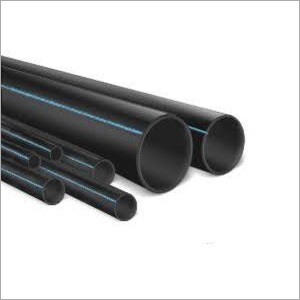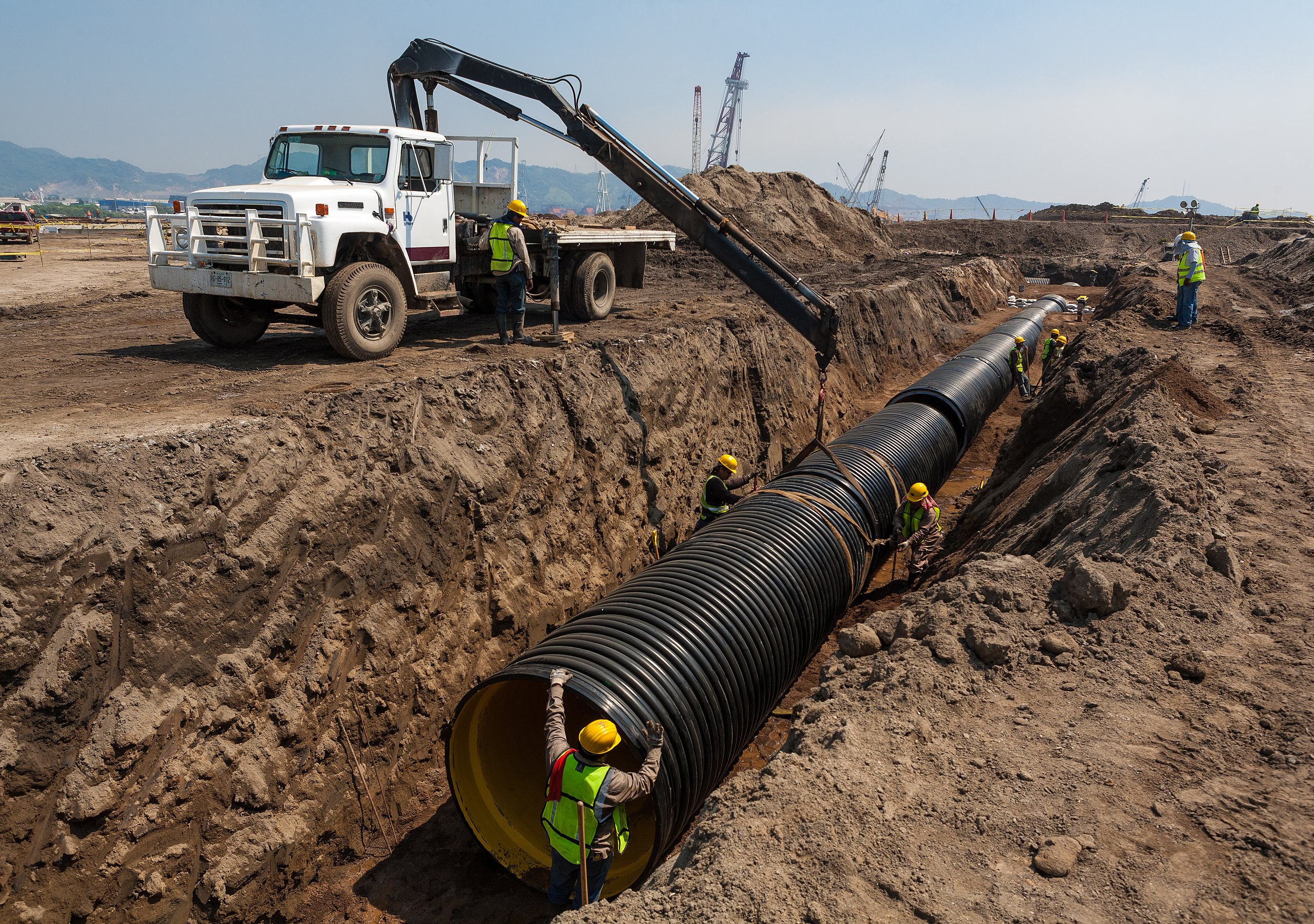FAQs About Texas hdpe pipe manufacturer and Their Process
Comprehending the Secret Conveniences of HDPE Pipe for Water and Wastewater Administration
Using HDPE pipe in water and wastewater administration offers numerous advantages that merit factor to consider. Its phenomenal resilience and long life expectancy make it a preferred option for lots of tasks. Furthermore, the product's resistance to deterioration and chemical damages enhances its dependability in various atmospheres. The advantages extend past simply longevity and resistance. Pipe Manufacturing Midland TX. Discovering its cost-effectiveness and environmental effect reveals a lot more engaging reasons for its widespread fostering in modern framework
Remarkable Sturdiness and Longevity

HDPE pipe stands out for its phenomenal toughness and longevity, making it a recommended selection in water management systems. Constructed from high-density polyethylene, these pipelines can hold up against substantial stress and stress and anxiety, making certain dependable efficiency gradually. Their durable nature enables them to sustain severe ecological conditions, including temperature changes and dirt activities, which can create various other materials to fall short.
The lifespan of HDPE pipes typically exceeds half a century, offering an affordable option for communities and markets alike. Furthermore, the product's lightweight properties streamline setup, minimizing labor costs and durations. This longevity decreases the need for constant repairs or replacements, even more improving its financial charm.
In water monitoring applications, the reliability of HDPE pipes indicates fewer interruptions and improved service connection, making them integral to sustainable infrastructure development. The mix of toughness and durability solidifies HDPE's role as a foundation in reliable water monitoring options.

Resistance to Corrosion and Chemical Damages
While many products catch corrosion and chemical damages gradually, HDPE pipes show impressive resistance, making them suitable for numerous water management applications. This strength comes from the molecular framework of high-density polyethylene, which is inherently non-reactive and does not wear away like steels or weaken from direct exposure to rough chemicals. Consequently, HDPE is very efficient in settings with hostile materials, such as wastewater systems that may consist of acids, bases, and natural solvents.
Additionally, HDPE pipes can stand up to environmental variables such as dirt level of acidity and saline problems, further boosting their suitability for varied applications (American Plastics HDPE Pipe Manufacturing). Their capability to keep architectural honesty over time decreases the danger of leaks and failings, which is vital in guaranteeing the security and integrity of water circulation and wastewater monitoring systems. Consequently, the resistance to rust and chemical damages significantly adds to the total performance and longevity of HDPE piping options
Cost-Effectiveness and Economic Benefits
When thinking about the economic implications of water monitoring systems, the cost-effectiveness of HDPE pipelines ends up being apparent. These pipelines supply reduced installation and maintenance expenses contrasted to conventional products like steel or concrete. Their lightweight nature simplifies transportation and setup, leading to reduced labor expenditures. In addition, HDPE pipelines show a lengthy life-span, frequently surpassing 50 years, which converts to fewer replacements and long-lasting savings.
The resistance of HDPE to deterioration and chemical damage minimizes the requirement for costly repairs and substitutes. The pipes also sustain reliable water circulation, lowering power costs linked with pumping systems. By reducing leaks and water loss, HDPE pipelines add to significant economic advantages for municipalities and sectors alike. In general, the first investment in HDPE piping can yield substantial economic returns over the lifespan of the water management system, making it a prudent option for sustainable infrastructure advancement.
Environmental Sustainability and Minimized Influence

Convenience and Flexibility in Installment
Because of their special residential properties, HDPE pipes use remarkable adaptability and adaptability in installation, making them appropriate for a wide variety of applications. Their light-weight nature enables easier handling and transportation, minimizing labor prices and installation time. HDPE pipes can be bent and formed to fit various surfaces and task requirements, which is especially pvc electrical conduit fittings valuable in challenging atmospheres.
In addition, their resistance to corrosion and chemical damage enables setup in diverse setups without the demand for specialized protective coatings. The capability to fuse joints develops a constant, leak-free system, boosting the general stability and reliability of the installation. HDPE's flexibility also accommodates ground movement, minimizing the danger of damages in areas vulnerable to shifting dirt. In general, these characteristics make HDPE pipes not just versatile but also a recommended option for water and wastewater management systems.
Regularly Asked Questions
Exactly How Does HDPE Pipe Compare to PVC in Water Management Applications?
HDPE pipe offers premium versatility, resistance to deterioration, and longevity contrasted to PVC. Its lighter weight promotes less complicated installation, while its lengthy lifespan lowers substitute prices, making HDPE a recommended option in water monitoring applications.
What Is the Life-span of HDPE Pipes Under Typical Conditions?
Under typical problems, HDPE pipelines can have a life expectancy ranging from 50 to 100 years. Their sturdiness and resistance to rust add to their lasting performance in various applications, making them a dependable choice for framework.
Are HDPE Pipeline Recyclable After Their Life Span?
Yes, HDPE pipelines are recyclable after their service life. custom hdpe pipe manufacturing Midland TX. They can be processed and repurposed right into brand-new products, greatly minimizing environmental effect and promoting sustainability within the market, making them an environmentally friendly selection for piping services
What Is the Installation Process for HDPE Piping?
The installation procedure for HDPE pipelines involves website preparation, trenching, pipe combination or mechanical joining, backfilling, and stress testing. Appropriate strategies guarantee a long lasting and reliable system for carrying water and wastewater properly.
Can HDPE Pipeline Be Utilized for Both Safe And Clean and Non-Potable Water Systems?
Yes, HDPE pipes can be utilized for both safe and clean and non-potable water supply. Their flexibility, toughness, and resistance to deterioration make them suitable for different applications, making sure secure and reliable sewer line inspection transport of water in different contexts.